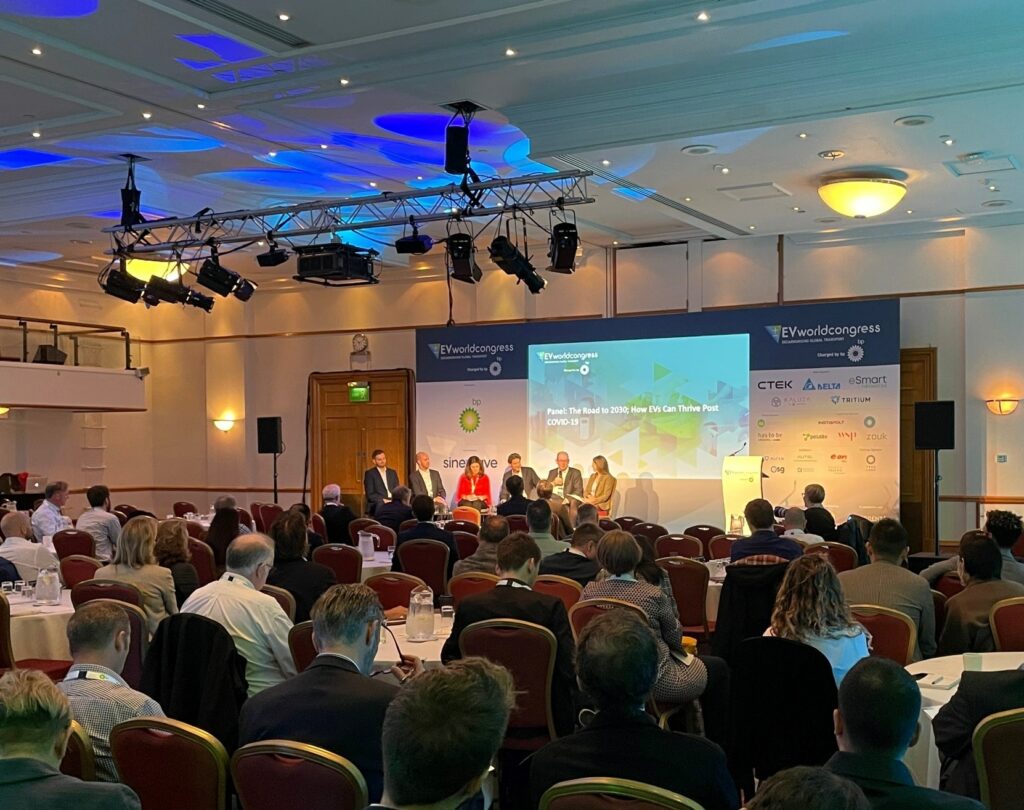The most important aspect of driving the rollout of electric vehicles (EVs) in the UK remains the availability of charging infrastructure.
Speaking on the first day of the EV World Congress in Bristol, Oliver Larkin, head of Group Corporate and Public Relations at Volkswagen Group UK, said “if you build it they will come”.
His fellow panellists speaking at the Road to 2030; How EVs can thrive post COVID-19 session agreed, pointing to the need for more public charging, developed through public and private partnerships to enable speedy installation.
While the chargepoint rollout will be key, there is still a challenge around getting a balance between the number of vehicles on the roads currently and chargepoints. An additional aspect of this will be the size and scale of the batteries within the vehicles themselves, as well as the types of chargers available for use.
With EV manufacturers increasingly looking to expand the range of the vehicles, there is the potential that fewer chargers will be needed per vehicle. Volkswagen for example is looking at 1,000km vehicles, giving them a range larger than many internal combustion engine (ICE) vehicles.
Theoretically in the future this could mean that cars need to charge less often, and as such fewer chargepoints are required. At the moment however, this is unlikely to impact the need for increased infrastructure, with the uptake of EVs – most of which will have a smaller range given the cost and weight of the batteries – the installation of further charging infrastructure remains a core enabler.
Along with this, more work needs to be done around engaging with the general public to ensure they’re aware of the overall cost of EV ownership in comparison to ICE vehicles. As Lauren Pamma, director at the Green Finance Institute, highlighted, more than 90% of vehicles are currently bought on finance, and yet when people consider switching to an EV they are often put off by the upfront cost.
The low cost of electricity in comparison to petrol or diesel makes the lifetime cost of an EV comparable if not significantly lower, but the communication of this needs to be more effective. Pamma suggests a change in language may aid this, with terms such as ‘Pocket Price’ brought in to more accurately represent the advantages of EVs.
This will go hand-in-hand with other key enablers of decarbonisation, such as behavioural change, noted Lloyd Allen, project manager at Go Ultra Low West at Bristol City Council.
The EV World Congress, hosted by Current± publisher Solar Media, is taking place over 19-20 October in Bristol, including the EVIEs awards ceremony.






